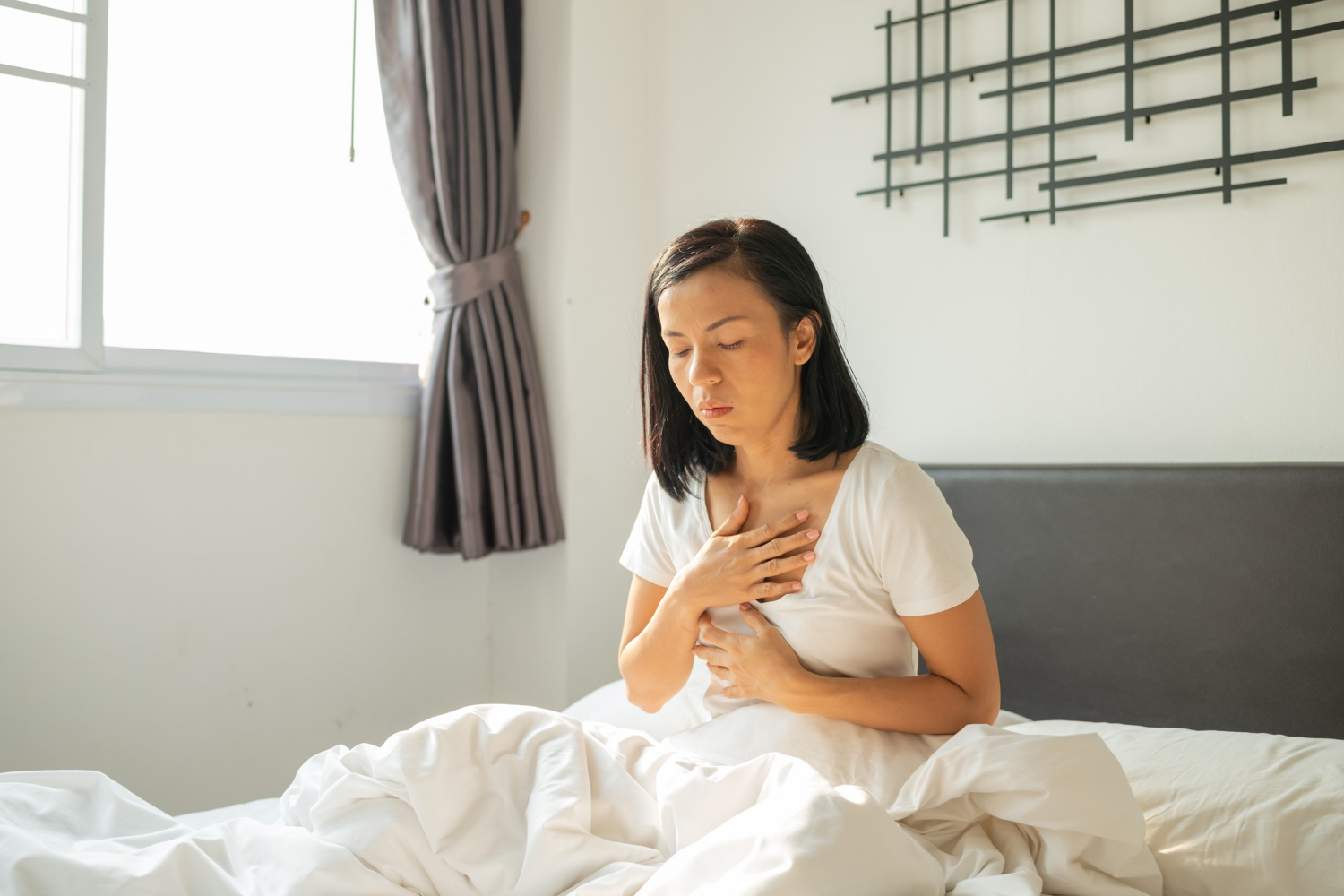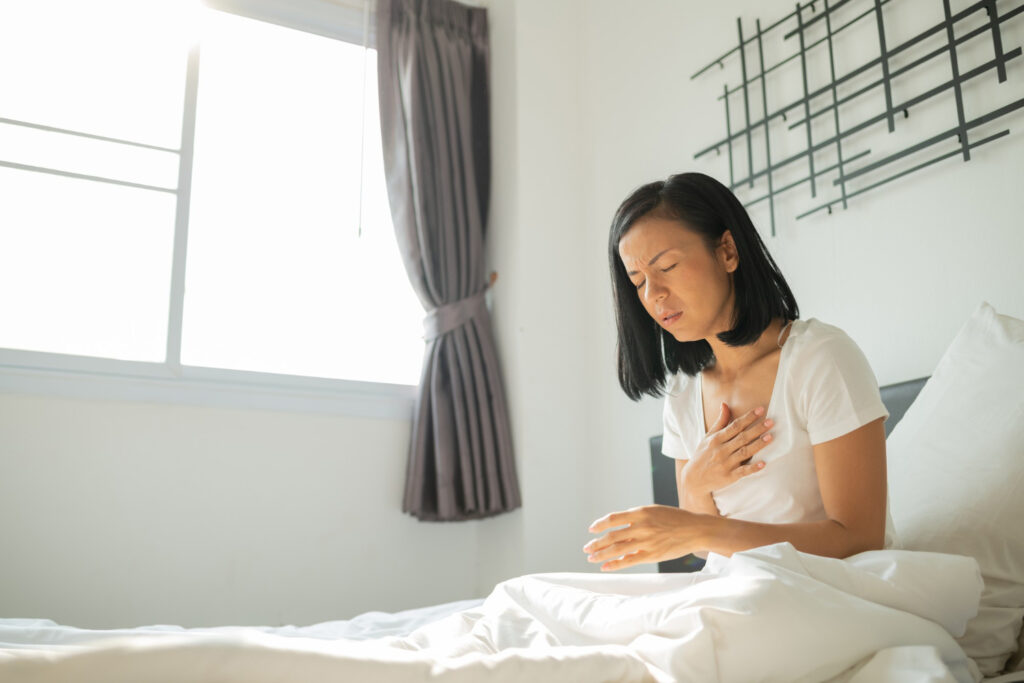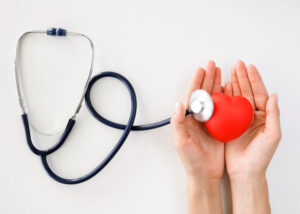
Experiencing sudden heart palpitations is quite worrisome and even frightening in women who, for various physiological, hormonal, and psychological reasons, may face such situations more often than men. Sometimes, palpitations are innocuous and appear just as a result of stress or because of hormonal changes. However, in some cases, it may denote more serious heart conditions or other internal disorders. Understanding the causes of palpitations and learning ways to prevent them are critical to good health and peace of mind. This article will comprehensively look at physical, psychological, and environmental reasons for sudden palpitations in women, thus helping you get acquainted with the issue and finding ways to manage and avoid it.
What are Palpitations?
Palpitations are sensations that your heart is beating faster than normal, irregularly, or harder than usual. It can be noticed instantly and may occur for no particular reason, with physical rest and without stress. Many people sometimes feel like their heart is pounding or could leap out of their chests. While palpitations usually are not accompanied by chest pain or breathing difficulties, these symptoms may occur in severe cases. Unlike serious arrhythmias, palpitations typically resolve quickly and are not constant.
Physiological Differences in Women’s and Men’s Hearts
There exist physiological differences between the woman and man heart that could make a difference in the response of their bodies to various factors:
- Differences in the Size of the Heart and Its Function
The woman’s heart is generally smaller compared to men; also, the resting heart rate is quicker compared to men, and this may perhaps make a female heart more prone to palpitations.
2. Effects of Sex Hormones
Sex hormones such as oestrogen and progesterone functional in women, especially at menstrual cycles or during pregnancy, affect the heart and blood vessels. Due to these hormones, the blood pressure and pulse rate alter. Furthermore, a postmenopausal decline in estrogen levels raises palpitations risk.
3. Menstrual Cycle and Pregnancy
Hormonal changes, especially during the days that herald a given cycle, tend to make palpitations more likely at certain times during the menstrual cycle. Pregnancy, due to increased blood volume and hormonal changes, is another possible cause of palpitations.
Physical Causes of Sudden Palpitations in Women
There are numerous possible physical causes of sudden palpitations in women. These are outlined in the following sections:
- Menstrual Cycle
During the luteal phase (post-ovulation), increased progesterone and decreased estrogen levels can heighten cardiovascular system excitability, increasing the likelihood of palpitations. Many women report experiencing palpitations just before their period starts.
- Pregnancy
Pregnancy is a very vulnerable stage for the women’s heart as the hormonal changes develop associated with almost a 50 percent increase in the blood volume that places an added stress on the heart. In such cases, progesterone dominates and may be contributing to an increased heart rate and sudden palpitations.
3. Menopause
Menopause, marked by a sharp drop in estrogen levels, has some implications for the heart and blood vessels. Estrogen is a well-known protector of the heart; it helps dilate the blood vessels and smoothen the flow of blood. A decline in the level of this protector at menopause stiffens the blood vessels, strains the heart, and hence can cause palpitations.
- Thyroid Disorders
- Hyperthyroidism: Overactive thyroid glands make too much thyroid hormone, which can accelerate the heart rate and excite the cardiovascular system leading to palpitations.
- Hypothyroidism: This is usually associated with a slow heart rate; however, hypothyroidism at times causes palpitations, especially in women related to stress or mineral deficiencies like iron.
- Arrhythmias and Gender Differences
- Atrial Fibrillation (AF): Women are more susceptible than men to certain arrhythmias, with the most common one being AF, a common cause of palpitations in women, often at menopause.
- Tachycardia: Supra-ventricular tachycardia is the other arrhythmia related more often to women, which brings about sudden and severe palpitations.
- Coronary Artery Disease
The risk for the development of coronary artery disease that interferes with the oxygen supply to the heart, thereby triggering palpitations is increased in post-menopausal women. The symptoms in females are mild compared to that of males and palpitation
7. Anemia
Iron deficiency anemia is more common in females of younger age due to chronic blood loss through menstruation. It may give rise to palpitations. A fall in the level of hemoglobin decreases oxygen delivery to tissues. The heart has to beat fast in order to increase oxygen delivery, leading to sudden palpitations.
8. Blood Pressure Problems
- High Blood Pressure/ Hypertension: Increased work by the heart due to high blood pressure can result in palpitations.
- Low Blood Pressure: A sudden drop in blood pressure is often followed by a compensatory rapid heartbeat; thus, palpitations occur.
- Nutritional Deficiencies
- Magnesium and Potassium Deficiency: These two minerals are very essential in the maintenance of the electrical balance of the heart. Deficiency common in women with very restricted diets or on some medication causes palpitations.
- Iron Deficiency: Especially among women who have heavy periods or are pregnant. This can lead to anemia and cause palpitations.

Prevention of Sudden Onset of Palpitations among Women
Many palpitation causes are manageable, and making the right changes in life can prevent it from occurring to a great extent. Here are the preventive measures:
- Stress Management
Stress management by following:
- Meditation and Mindfulness: Through the mechanisms of meditation and mindfulness practices, one can quiet the mind and reduce daily stress. It prevents heart palpitations by lowering the amount of stress hormone-cortisol-one produces.
- Yoga: Yoga improves heart functioning and reduces stress by combining physical movement, deep breathing, and mental relaxation.
- Deep Breathing Exercises: Breathing techniques such as diaphragmatic breathing or box breathing can help reduce stress and anxiety immediately.
- Healthy Diet
A healthy and well-rounded diet makes the foundation for keeping your heart healthy and preventing heart palpitations. Here’s a few key suggestions to note while setting up your plate:
- Add Heart-Friendly Nutrients: Foods that have magnesium, potassium, and iron assist your heart’s electrical system with a proper performance. Examples include leafy greens, bananas, avocados, nuts, red meat, and whole grains, among the best!
- Lay off Caffeine and Stimulants: All that excess coffee, tea, or energy drinks can overdrive your nervous system and precipitate palpitations. Believe it or not, simply reducing this intake can make the difference.
- Mind the Salt: A high intake of salt can raise your blood pressure level and lead to palpitations easily. It is best to eat as little salty snacks and packaged foods as possible.
- Stay Active with Regular Exercise
The best thing you can do for your heart is getting regular exercise-especially such activities as walking, running, swimming, or cycling. In this way, aerobic exercises strengthen your heart and raise its efficiency. Some relaxing practices, such as yoga or Tai Chi, may help you keep stress at bay and reduce palpitations.
- Be Mindful of Medications and Supplements
Certain medications or supplements may be contributing to palpitations. If you think this may be the case, discuss your options with your doctor; he or she may be able to adjust your treatment or offer alternatives. Be wary of herbal remedies or supplements containing ginseng or ephedra, which may have an impact on heart rhythm.
- Monitor Your Weight
Carrying excess weight puts added strain on your heart and will increase the likelihood of palpitations. Keeping the body at a healthy weight is achieved by eating right and remaining active to keep your heart happy.
- top Smoking and Reduce Alcohol Consumption
Smoking and excessive alcohol can be the biggest heart spoilers. Nicotine and alcohol disrupt how your heart works, so quitting or cutting down will greatly reduce the risk of palpitations.
- Rest and Sleep are Important
Not getting enough sleep or rest can make you feel stressed and anxious, leading to palpitations. You should aim to get 7–9 hours of good-quality sleep each night. Keeping to a regular bedtime and avoiding caffeine in the evening may help.
Final Thoughts
Understanding what triggers heart palpitations and making simple changes in your daily habits can do wonders for your overall heart health. By taking these steps, you’re not just protecting your heart, you’re also improving your quality of life. A healthy heart means a healthier, happier you.
References








No comment yet, add your voice below!